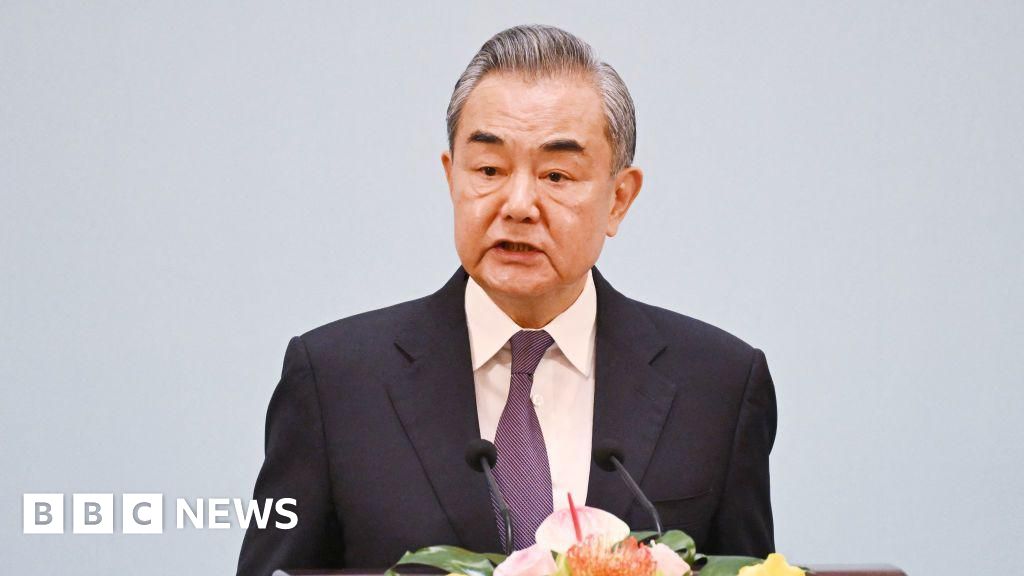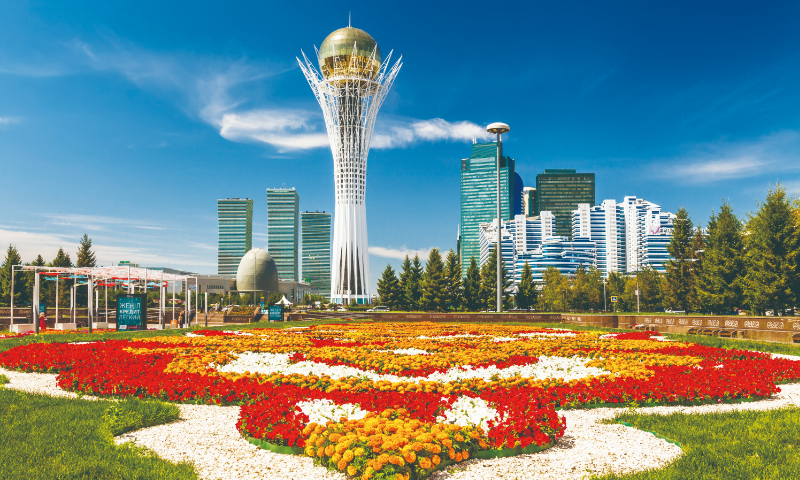China hits back at NATO over Russia accusations

China’s Foreign Minister Wang Yi has rejected NATO’s “baseless accusations” that Beijing is supporting Russia in the war against Ukraine.
He also warned the Western alliance against fomenting a confrontation.
Wang’s comments in a phone call with his Dutch counterpart came hours after the heads of state and government of NATO member states gathered in Washington DC and issued a statement mentioning the war.
They accused China of “decisive pioneer” of Russia through its “large-scale support of the Russian defense industry” – some of its harshest remarks yet about Beijing.
They called on China to stop “all material and political support” for the Russian war effort, such as the supply of dual-use materials, i.e. items that can be used for both civilian and military purposes.
Western states have previously accused Beijing of passing on drone and missile technology as well as satellite images to Moscow. The US estimates that around 70 percent of the machine tools and 90 percent of the microelectronics that Russia imports come from China.
Beijing was also accused of conducting “malicious cyber and hybrid activities, including disinformation” against NATO countries.
In a press conference on Thursday, US President Joe Biden said he had held talks with other heads of state and government about clearly outlining the consequences for China.
“China must understand that it will not gain any economic benefit from providing Russia with intelligence and capabilities and working with North Korea and others to support Russia and its military capabilities,” he said.
“I think you will see some of our European friends limit their investments in China.”
He pointed out that Russia had requested weapons from China and North Korea, adding that NATO countries were considering a new policy to transform the West into an “industrial base” for ammunition and to develop new weapons systems.
On Thursday, Wang said in a conversation with new Dutch Foreign Minister Caspar Veldkamp that “China absolutely does not accept all these accusations” and insisted that the country has “always been a force for peace and stability.”
In comments distributed by state media, He said that China’s different political system and values ”should not be a reason for NATO to engage in confrontation with China” and called on NATO to “stay within its borders”.
His remarks were the latest in a flood of angry reactions from Beijing.
Earlier, a US State Department spokesman said on Thursday that NATO was using “fabricated disinformation” to tar China. Beijing’s mission to the EU called on the alliance to “stop exaggerating the so-called threat posed by China.”
Beijing has long denied accusations that it supports Russia in the war and insists it remains neutral. It called for an end to the conflict and proposed a peace plan, which Ukraine rejected.
But alongside growing allegations of military support, observers also pointed out that Beijing’s purchases of huge amounts of oil and gas had helped bolster the Russian economy, which had been crippled by sanctions, and replenish state coffers depleted by war spending.
Beijing’s official rhetoric on the conflict often resembles Moscow’s – like Moscow, China is still not talking about war. Chinese President Xi Jinping has a close relationship with Russian President Vladimir Putin, and both famously declared that their partnership “knows no borders.”
Beijing accused the US and other Western states of adding “fuel to the fire” by supplying Ukraine with deadly weapons and technology for defense.
In recent weeks, several countries have gone a step further and allowed Ukraine to use their weapons to attack targets in Russia.
During the three-day NATO summit that concluded on Thursday, the alliance continued to stress its commitment to Ukraine. Member states said they would support Ukraine on its “irreversible path” to future membership, adding that “Ukraine’s future lies in NATO.”
They also announced greater integration with the Ukrainian military and support for its defense. The alliance has committed to providing at least 40 billion euros ($43.3 billion, £33.7 billion) in assistance over the next year, including F-16 fighter jets and air defense support.



